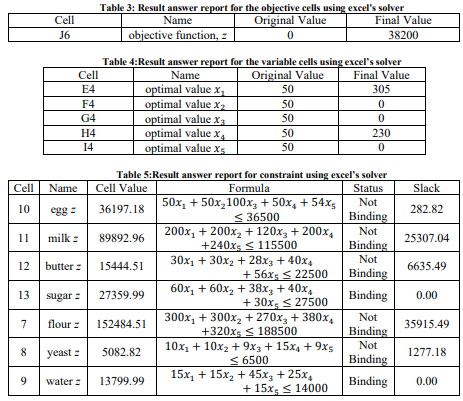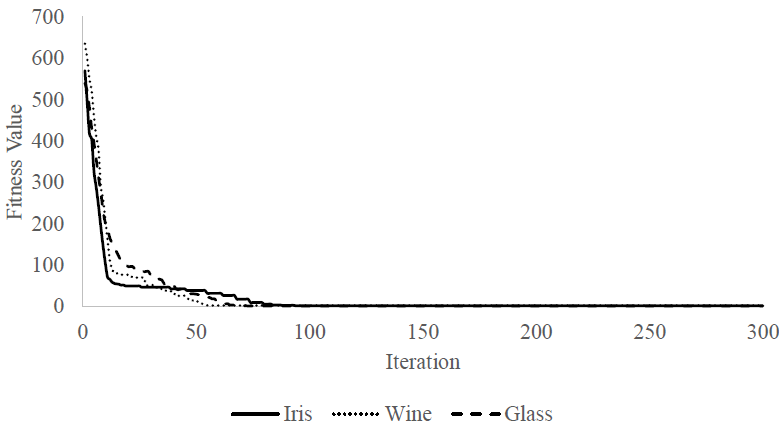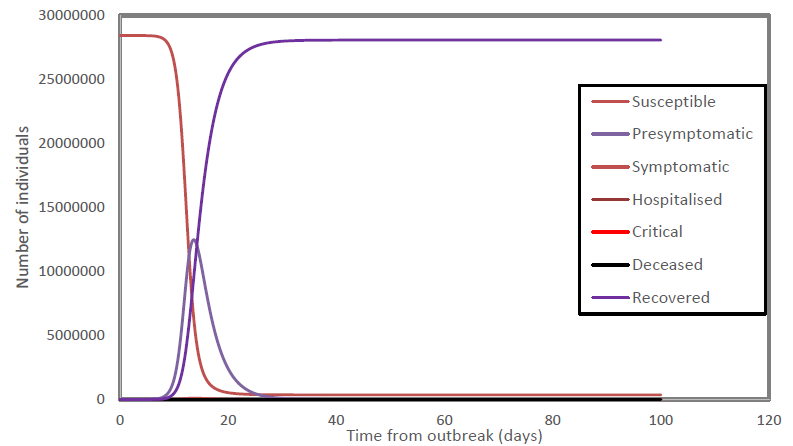Simplex Method for Profit Maximization in Bakery Store

Semester 1 academic session 2023/24
Course synopsis:
This course introduces to Computers and Computing Fundamentals, Program Structure, Printing, Comments, Variables, Arithmetic Operations, Math Functions, Input/ Output, Control Structure, Looping, Functions, Numeric Arrays and their application on solving engineering problems. C programming language is utilized in this course.
Course outcome:
CO1 :- Ability to construct C programs with the desired input/ output.
CO2 :- Ability to construct C programs with control structure and looping.
CO3 :- Ability to construct C programs with functions and numeric arrays.
Semester 2 academic session 2022/23
Course synopsis:
This course covers the basic concepts in thermodynamic such as the properties of substances, energy principles, first and second law of thermodynamics which applicable in engineering applications. The course emphasizes the study of energy sources and conservation, enthalpy, entropy, ideal and real gas through its concept and principles.
Course outcome:
CO1 :- Ability to analyse the properties of pure substance.
CO2 :- Ability to formulate energy balance accordingly to the first law of thermodynamics for a system.
CO3 :- Ability to evaluate the second law of thermodynamics with entropy changes of substances in a system.
Semester 1 academic session 2022/23
Course synopsis:
This course is designed to expose students with an investigative research-based project to solve engineering issue(s)/problem(s). Students are required to identify problems, develop techniques for information gathering, conduct literature review and select appropriate methodology. Students are assessed by a written and oral presentation at the end of the semester.
Course outcome:
CO1 :- Ability to integrate comprehensively the needs and the insights of research works conducted.
CO2 :- Ability to investigate and conduct research literature of complex engineering problems with selected knowledge in the research literature of the discipline.
CO3 :- Ability to propose and develop design solutions or methodology for complex engineering problems that meet specified needs with appropriate consideration including design of experiments, modeling or simulation.
CO4 :- Ability to perform effective presentation on complex engineering activities undertaken.
CO5 :- Ability to demonstrate and apply engineering management principles by managing research project.
Semester 1 academic session 2022/23
Course synopsis:
This course is designed to expose students with an investigative research-based project to solve engineering issue(s)/problem(s). Students are required to identify problems, develop techniques for information gathering, conduct literature review and select appropriate methodology. In addition, students are required to deliver individual analysis and judgement, utilize appropriate modern technology/tools in conducting the research and assessed independently. At the end of the semester, students will prepare a final report and deliver both written and oral.
Course outcome:
CO1 :- Ability to integrate comprehensively the needs and the insights of research works conducted.
CO2 :- Ability to investigate and conduct research literature of complex engineering problems with selected knowledge in the research literature of the discipline.
CO3 :- Ability to propose and develop design solutions or methodology for complex engineering problems that meet specified needs with appropriate consideration including design of experiments, modeling or simulation.
CO4 :- Ability to synthesize complex engineering problems using first principles of mathematics, natural sciences or engineering sciences in order to evaluate and interpret data to provide results and conclusions with recommendations.
CO5 :- Ability to perform effective presentation on complex engineering activities undertaken.
CO6 :- Ability to demonstrate and apply engineering management principles by managing research project.
Semester 1 academic session 2022/23
Course synopsis:
The course covers the principle of engineering design process continuing from conceptual design process in the prerequisite course. This course focuses from embodiment design to developing functional prototype. Students are expected to work in a group on selected theme to design a project with current issues related to safety, cultural, societal, environmental as well as the economic considerations. At the end of the course, students are required to present and demonstrate the working prototype.
Course outcome:
CO1 :- Ability to acquire information from a variety of sources, apply design process and develop solutions to solve complex mechanical engineering problem.
CO2 :- Ability to evaluate solution that meets customer and financial needs with consideration to standard regulations for environmental and societal impact.
CO3 :- Ability to communicate effectively and demonstration of the design solution.
CO4 :- Ability to function in a team for the successful delivery of design project.




